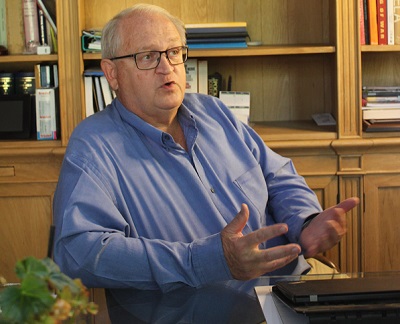

Director: ReVive Advisory & Turnaround
Over the past two weeks, we have discussed creditors’ critical role and how they are favouring informal workouts over liquidation and business rescue.
This was reaffirmed at the recent SARIPA Conference, where several roundtable discussions focused on the industry’s future and what professionals can expect.
The informal workout process is guided by principles set out by the International Association of Restructuring, Insolvency & Bankruptcy Professionals (INSOL International). Last week, we looked at the second principle. This week, we will focus on the third and fourth principles.
Third Principle
INSOL points out that during the Standstill Period, the debtor should not take any action that might adversely affect the prospective return to relevant creditors (collectively or individually) compared with the position at the Standstill Commencement Date.
This really boils down to the “first do no harm principal.
Creditor support
In return for support from the relevant creditors, the debtor should agree not to take any action that will disadvantage relevant creditors during the Standstill Period, except paying employees, trade, and other (non-relevant) creditors in the ordinary course of business.
This means that there should be no extension of securities and preferences for any creditors. Creditors may request security for existing funding, but no new funding should be advanced.
Fourth Principle
INSOL points out that the interests of relevant creditors are best served by co-ordinating their response to a debtor in financial difficulty. Such coordination will be facilitated by the selection of one or more representative coordination committees and by the appointment of professional advisers to advise and assist such committees and, where appropriate, the relevant creditors participating in the process.
The use of a creditors committee and professional advisors is recommended to bring credibility into the process and to hold whatever trust is left in the creditor group.
INSOL points out that, to assist with the coordinated approach, it is usual for the relevant creditors to appoint one or more representative committees to progress dialogue with the debtor and to help manage the evaluation process and the standstill arrangements.

Image By: Canva
Coordination committees (or the relevant creditors themselves) may select one or more of their numbers to act as the main coordinator(s). Such a co-ordinator will take first-line responsibility for much of the administrative burden of the process and will also normally chair the meetings of the coordination committee.
These committee structures can also align among creditor groupings with similar size and securities often used as the criteria.
Responsibilities and purposes
INSOL points out that the responsibilities and purposes of co-ordination committees and co-ordinators (hereafter together referred to as “co-ordinators”) will be determined by the relevant creditors. Co-ordinators do not usually represent the pertinent creditors of the sense of having the authority to commit them to any course of action. The coordination committees act as sounding boards, not only to the co-ordinator (if any) but also to enable the debtor to obtain an indication of the likely reaction of the relevant creditors to developments and to any proposals which the debtor may be thinking of making.
Interesting that INSOL recommends the use of creditor committees, but the practice is not common is our Business Rescue procedures. Perhaps the INSOL guidelines and mandates ought to guide the Practitioners in the use of the committees. They can be useful in rebuilding trust and brining disparate parties to the table.
The co coordinators of these committees often have to facilitate disputes and heard the creditors in agreeing to painful financial decisions. These individuals are often compensated for their efforts to ensure impartial and objective decisions.
All parties should remember that the role of the coordinator and the coordination committee is to facilitate the process, not to make commercial decisions on behalf of others.

Image By: Canva
INSOL points out that the coordinators are often given delegated authority to instruct outside professionals such as accountants, lawyers and valuers to provide advice for the benefit of the relevant creditors as a whole
The professionals are also often used in Business Rescue adding to the overall cost of the process.
Importantly, each of the relevant creditors will be expected to make its own assessment and decisions regarding any information, advice or proposals it receives either directly or via co-ordinators with regard to matters related to the restructuring process
“The obvious advantage of the co-ordinator being a creditor with significant exposure to the debtor is that the co-ordinator’s reaction to proposals is likely to be indicative of the reaction of relevant creditors generally. On the other hand, a self-interested co-ordinator may, in some cases, have significant differences of view from other creditors, which may harm the process. The choice should lie with the relevant creditors”.
INSOL points out that co-ordination committees usually operate based on consensus rather than majority voting, particularly as they have no actual authority to bind the relevant creditors as a group.
Conclusion
It is striking that the harder one looks at the INSOL principals the more one comes across rigid structures included in the Business Rescue process and the recommended approaches.
Halfway through these principles they are beginning to look a lot like the principals contained in Chapter 6 of the Companies Act. The differentiation is largely that this is voluntary and not required by law. It could be that Chapter 6 provides more enforceable rights to creditors and that a blend of the INSOL principals and Chapter 6 guidelines could encourage best practice in business rescue?




